National Startup Analysis Sees Potential, Standout Efforts Underway in Hartford
/A new analysis of the status of the business startup community in six American cities – including Hartford – has found that Connecticut’s Capitol City has “strong startup potential,” and in some ways is already standing out among peers and competitors.
Startup Genome, with support from the Kauffman Foundation, selected six U.S. metropolitan areas that are not in the top 40 most populous and which have been faring less well economically than the country as a whole for a deeper analysis. In addition to Hartford, the analysis includes Albuquerque, Fresno, New Orleans, Reno and Springfield, MA.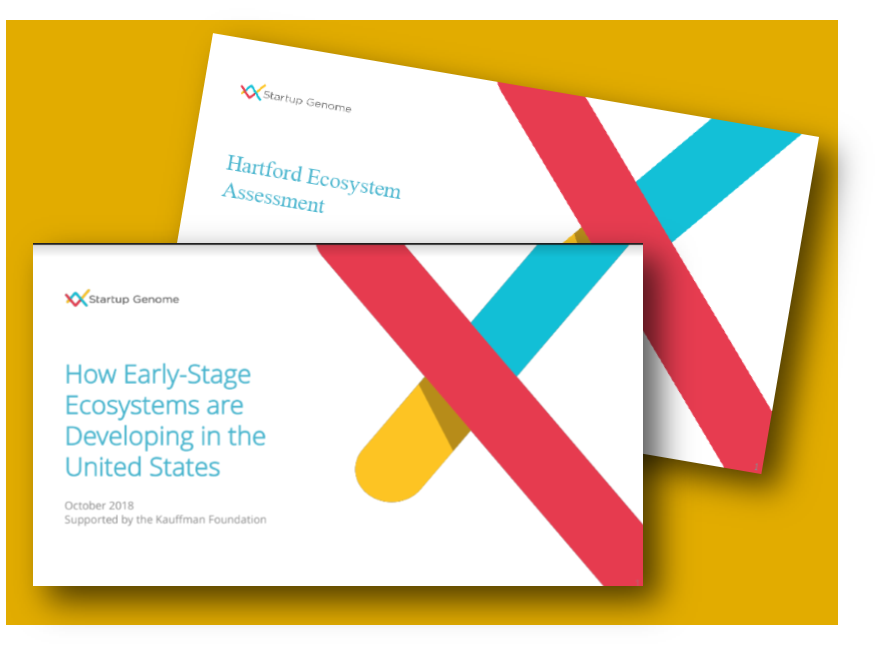
“In each of these metros, efforts are underway to support entrepreneurs, create more startups, and generate stronger economic trajectories. Like many other American cities (and elsewhere), they’ve been through economic ups and downs and now see startups as their next best hope for sustainable and broadly-shared growth,” the report, released this week, points out. Startup Genome works to increase the success rate of startups and improve the performance of startups across more than 30 countries.
“Every startup ecosystem shows room for growth and improvement, and Hartford has key strengths to build on. The city's strong heritage in insurance is already being leveraged by many stakeholders and the ecosystem is clearly attracting experienced talent to start and join companies,” Dane Stangler, president & chief policy officer of Startup Genome told CT by the Numbers.
In Hartford, reSET, which specializes in encouraging and assisting entrepreneurship and social enterprise, was among several local partners with whom Startup Genome worked to gather data from more than 300 respondents. Additional partners were the MetroHartford Alliance, Wesleyan University, UConn’s Connecticut Center for Entrepreneurship and Innovation, Upward Hartford, as well as Launch EZ, the West Hartford Chamber of Commerce and others.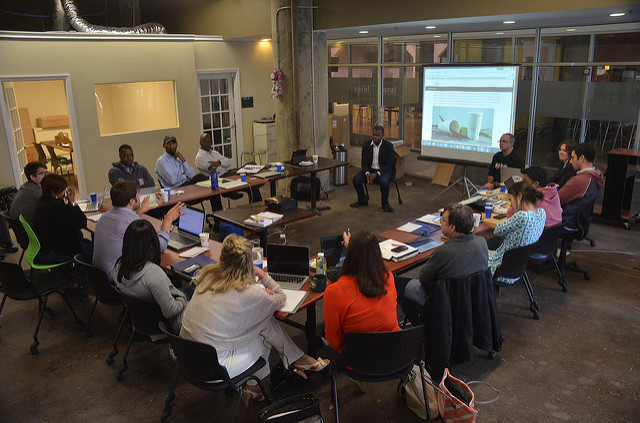
“More broadly, Hartford shows greater diversity than peer ecosystems and already has a few hundred startups operating. By continuing to strengthen the local culture and focusing on startup success in key areas, the Hartford economy will enjoy higher levels of job creation and growth,” Stangler added.
Hartford and the other cities were determined to be in the Early Activation phase of the Ecosystem Lifecycle, with a mix of prominent attributes and areas with potential yet to be realized. In its analysis, the report indicates that “just in the span of a few years the startup scene has exploded,” in Hartford, noting that:
- investors and experts in Hartford provide more hours of help to founders than in the other cities, and more than the global average. (Experts include university faculty, corporate employees, mentors, and others.)
- nearly four in 10 founders in Hartford are women, which is twice the global average across all ecosystems in the Startup Genome database.
- 11 percent of startup founders in Hartford are immigrants, the second-highest in the sample.
“We’re so grateful that Startup Genome was able to include Hartford in its recent analysis of early-stage ecosystems, thanks to support from the Kauffman Foundation,” said reSET Managing Director Ojala Naeem. “Our great city is too often overlooked, and with local and state funding being what they are, national attention on all of the amazing businesses making an impact here is more important than ever. We have so many smart and motivated entrepreneurs who are worthy of investment consideration. They just need a spotlight.”
 The comprehensive assessment of Hartford’s ecosystem also noted that “Hartford’s [startup] founders claim to have the right ambition to go global,” concluding that “Hartford’s startups have more potential to strengthen Global Market Reach and Global Connectedness.” In a number of areas analyzed in the assessment, Hartford is seen as having potential to strengthen the local startup community, its reach beyond Hartford, and the demographic of startup teams.
The comprehensive assessment of Hartford’s ecosystem also noted that “Hartford’s [startup] founders claim to have the right ambition to go global,” concluding that “Hartford’s startups have more potential to strengthen Global Market Reach and Global Connectedness.” In a number of areas analyzed in the assessment, Hartford is seen as having potential to strengthen the local startup community, its reach beyond Hartford, and the demographic of startup teams.
During the past seven years Startup Genome has provided a way for entrepreneurs everywhere to “tell us about their journeys and their regions - giving their local expertise a voice at the policy-making table.” The organization’s primary research with founders, supplemented with secondary research and data from global and local partners, helps create the world’s most comprehensive research on startups. Approximately 10,000 startup founders fill out global survey providing direct input each year.

“Hartford has some record of successes – generating more will help ecosystem size and performance,” Startup Genome observed in its assessment of Hartford.



 The Superlative Award for “Most Improved Pitch” was won by
The Superlative Award for “Most Improved Pitch” was won by 



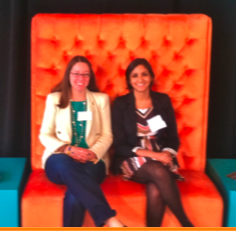 rt this new chapter,” said co-founder and CEO Kate Pipa, who lives in Shelton. “And we are excited to bring kids a new box each month of hands-on fun that also doubles as a learning opportunity and is making social impact for the kids and for our partner organizations.”
rt this new chapter,” said co-founder and CEO Kate Pipa, who lives in Shelton. “And we are excited to bring kids a new box each month of hands-on fun that also doubles as a learning opportunity and is making social impact for the kids and for our partner organizations.”
 ould be the best fit
ould be the best fit
 es (often with state financial incentives) the report offers guidance of factors influencing the frequency of entrepreneurial launches. Connecticut Innovations, established and supported by state government, helps Connecticut businesses grow through creative financing and strategic assistance, and is the nation's sixth most-active early stage investor.
es (often with state financial incentives) the report offers guidance of factors influencing the frequency of entrepreneurial launches. Connecticut Innovations, established and supported by state government, helps Connecticut businesses grow through creative financing and strategic assistance, and is the nation's sixth most-active early stage investor.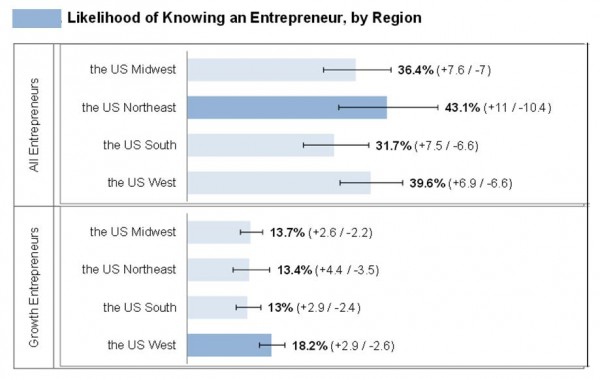 in the United States was 36.7 percent. The likelihood of knowing a growth entrepreneur was considerably lower, at 15.4 percent.
in the United States was 36.7 percent. The likelihood of knowing a growth entrepreneur was considerably lower, at 15.4 percent.
 ch, they can submit their wedding date, budget and dress size. Voncierge has a unique search and tag feature where every image is tagged with the relevant vendor.
ch, they can submit their wedding date, budget and dress size. Voncierge has a unique search and tag feature where every image is tagged with the relevant vendor. 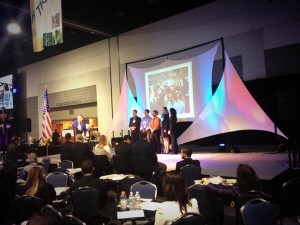 orporate law firm, which meant I barely had time to sleep or eat—so sitting by the phone playing phone tag with vendors did not make me happy,” Jang said. “I knew there had to be a better way, so I set out to create it.”
orporate law firm, which meant I barely had time to sleep or eat—so sitting by the phone playing phone tag with vendors did not make me happy,” Jang said. “I knew there had to be a better way, so I set out to create it.” 





























